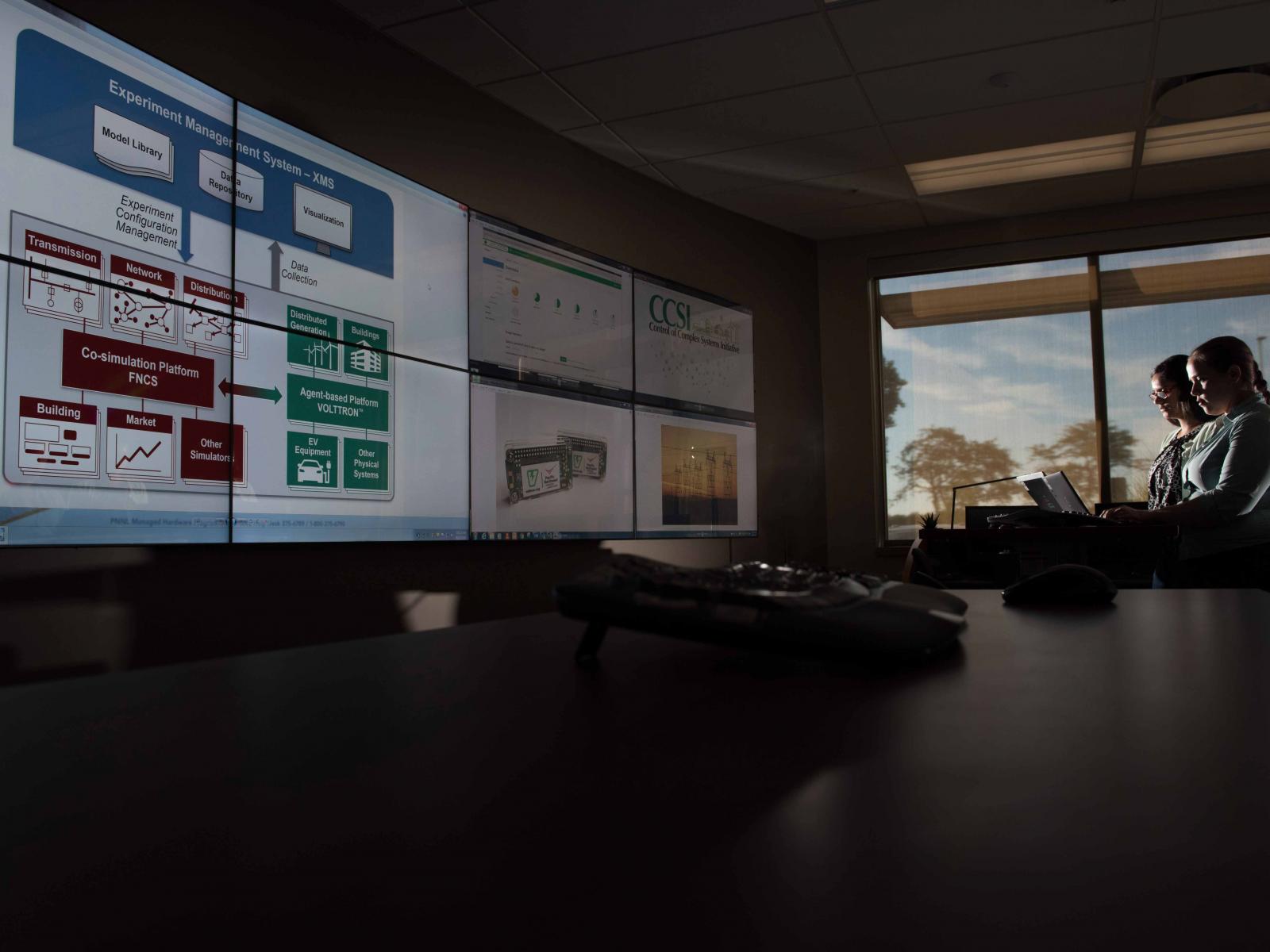Building Operations Control Center
The brain of a living laboratory

The Experiment Management System (XMS) was developed by PNNL’s Control of Complex Systems Initiative to facilitate development of control solutions.
Andrea Starr | Pacific Northwest National Laboratory
As part of the mission to modernize the grid, PNNL has created a campus that maximizes energy efficiency and can be used as a living laboratory for grid research. The brain of this operation is the Building Operations Control Center (BOCC)–a portal for researchers, engineers, and facilities and operations staff to connect to intelligent infrastructure from the smart grid, allowing access to extensive data from campus buildings, systems, and components.
The BOCC staff monitors data to optimize energy, extend asset life, and enhance the reliability and efficiency of PNNL's campus by communicating directly with building engineers. BOCC staff can:
-
perform functional tests on equipment to validate sequence of operation
-
validate automatic diagnostics of equipment when fault is detected
-
analyze trends to understand equipment operation
-
perform diagnostic monitoring and trend verification of systems continuously
-
and much more.
Thanks to data obtained by the BOCC, PNNL has certified three buildings as high performance sustainable buildings using the Department of Energy's Federal Energy Management Program (FEMP) Guiding Principles for Sustainable Existing Buildings. Additionally, the Systems Engineering Building–which houses the BOCC and is designed to meet FEMP guiding principles–is PNNL’s second building to earn Leadership in Energy and Environmental Design Gold certification and is expected to achieve 32 percent energy savings, equivalent to an annual savings of $11,000.
The goal of the BOCC is to discover and apply the latest technology to PNNL buildings by creating a collaborative environment. In addition to bringing together current professionals from various fields, cross-training and mentoring of undergraduate engineers also occurs at the BOCC. Through the real-world experience and expertise offered here, PNNL hopes to maintain a highly skilled workforce and inspire the next generation of engineers.